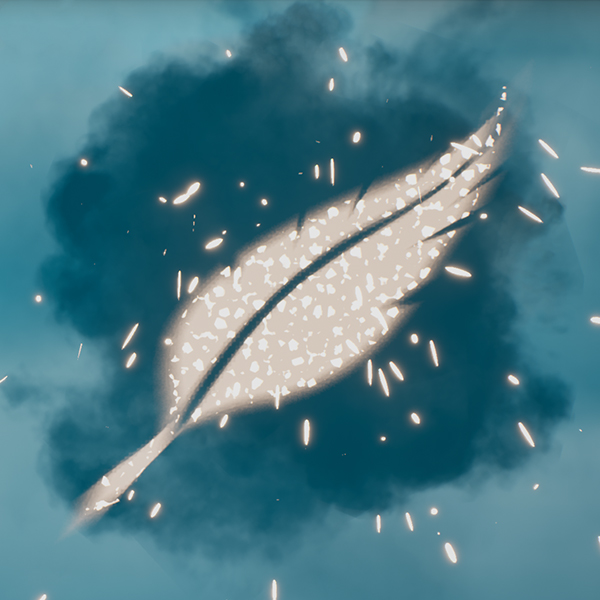If you navigate to playdauntless.com and look toward the upper-left corner, you’ll see a familiar sight: a regional flag. Click it and you’ll be presented with a list of languages in which you can view the site. There’s English, French, German, Italian, Spanish, and Brazilian Portuguese. The same flag – and options – exist in-game as well.
It’s easy to take these things for granted. (“Of course it’s in Spanish!”) But every non-English word on our site, in our game, and even in our emails is the result of a concerted effort by a team of translators, all of whom volunteer their time specifically to help us bring Dauntless to you.

Slaying the Language Barrier
Translating Dauntless is a sentence-by-sentence effort. Each phrase, quest, weapon name, and button label enters the system as a “string” to be translated. Volunteers can choose to translate a string themselves, or they can vote up another translator’s interpretation. Once the strings are addressed and votes have been cast, the most experienced volunteers (called “Editors”) choose a single translation as the final version. These carefully translated, vetted, and approved strings then move into the game itself, becoming the words and world you experience in Dauntless.
Most strings take just a couple of days to translate. (Interesting or entertaining strings tend to move even faster.) But in some situations, linguistic variables can turn even short strings into Gordian knots. Asked which terms were among the most difficult to translate, French Editor Enriel replied: “WEAPONS.”
“Giving good names is a key to success. [You have to] know how to convey the weapon, give the desire to play it, get the sense of it down to a mere word or two. War pike became aetherolance [in French] – a highly debated term – because we came down on the side of emphasizing the aether and the weapon’s pokey, stabby nature.”
In some cases, sentences have to be restructured or flipped in order to work around grammar issues. “In the game, we have strings that use variables,” says Alexandre Colson (Metalliguitare), another editor on the French team. “For example, ‘Slay 5 Embermanes using a [type] [weapon].’ In French, we have to deal with genders and plurals. So we had to turn it around to be, ‘Slay 5 Embermanes with this weapon-type combo: [weapon] [type].’ I’m still not totally satisfied with this.”
Rafael Lourenço (Black_chef) relishes the challenge of getting things just right. He has been translating the game’s English to Portuguese for about a year now. “With some translations, we almost have to forget the English source and focus on what is behind it to work.” He’s especially proud of the translation for the Gnashmasher: Esmagnasher.
(Esmagar means “to smash.”)
A Team Effort
Despite the challenges inherent in translation, Dauntless’ translators share a great affection for both the work and the community that’s grown up around it.
“There are great people on all the teams,” says Darthplagueis13, a German editor. “An evening when members from all of the regions are online can be akin to a party of sorts. There’s usually someone you can play Dauntless with, and if you feel like theorycrafting you can head to the lore channel [on Discord]. It feels absolutely awesome to be part of a community full of lovely people.”
Derdotte, one of the first translators to join the program, spoke to the community’s evolution. “We started as a very ambiguous group that was just interested in seeing Phoenix Labs grow. I joined because I just had to help the devs who were creating this Monster Hunter-type title for PC – something I had wished for forever.” Over time, Derdotte watched the program move away from its tech alpha origins and develop into a true community. “At this point, the community aspect [of the program] is our most important achievement. It’s something I am very proud of.”
Translators were quick to point out Melanie Fleming’s leadership as well. Mel is Dauntless’ Localization Project Manager and the leader of the volunteer translation effort. With close to 150 translators across the program, she spends much of her time shepherding and coordinating efforts to get every language piece in place.
“Mel is the mighty leader we all love,” says Enriel. “Without her I doubt [the translation program] would exist.”
The Way of the Quill
Dauntless’ translators are a group bound together by a shared love of gaming and a knack for language. Those dual passions inspired Mel Fleming and Brad Jolly – also known as BlessRNG – to develop an official appreciation program for volunteer translators working on the game: the Translator Appreciation Program.
Announced last week, this new program will recognize committed translators with several tiers of in-game perks. The first tier offers a Quill Flare, Quill Sigil, and special “Translator” title. Higher tiers offer additional titles – from “Linguist” to the merit-based “Local Hero” – as well as special emotes. Translators who contribute for three or more months can get their name in the Dauntless credits.
There’s even a flare being designed by the community itself.
“I got so excited when Brad told us that we could draw our own personal design that I came home from work that night at one in the morning and started drawing quills everywhere,” says Editor Anna Zenti (Elwing), affectionately called “Nonna” (grandmother) by her Italian team members. “I came up with a couple of nice ideas, the other editors gave some really good suggestions, and I reworked the designs again and again. Now two of my designs are up for the final decision. I am so proud and happy!”
The Translator Appreciation Program is still in its early stages, but keep an eye out next time you’re in Ramsgate. If you see a quill, send its bearer a “thank you.” We’ll be doing the same.
Becoming a Translator
“No one comes ready to translate,” says Enriel. “That is why we are a team at our core.”
“I was clumsy at the start,” he explains, “I was too eager to start and prove myself. Metalliguitare (now a good friend of mine) gave me guidance and taught me a lot. Mel also gave us insight and ways to learn.”
Nineteen months later, Enriel has made great strides. A fully-fledged editor, he coaches new translators into improving their skills and continues to work on refining his own. “We are not looking for perfect people or translators. We are looking, as a team, for people willing to share their opinions, to argue, but also to listen to and accept other opinions.”
“Entering this team, and later becoming an Editor, is without a doubt one of the best things that has happened in my life,” says Elwing. “I will never be able to thank enough all the friends I’ve made here. They’re real friends. They made me understand that I can do amazing things. That I can manage a team, bring ideas to improve an already amazing project. And for a shy and insecure person such as I am, this is a lot.”
“Thanks to this team, I came to understand that translating is what I want to do in life, even if it’s hard. I’ll do whatever it takes to make this dream come true, and if I succeed I know I’ll thank each of them from the bottom of my heart.”

